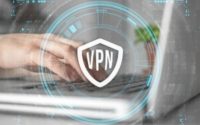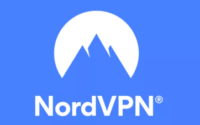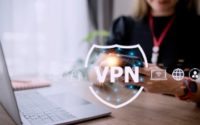Best VPN Providers

If you want to secure your data online, a good vpn is your best friend. It encrypts web traffic and replaces your IP address, upholding your privacy.
It also hides your data from marketers and Internet Service Providers, which can be useful if you’re concerned about your personal information. It’s worth looking for a VPN with a strong no-logs policy and a kill switch to prevent accidental data leaks.
1. ExpressVPN
ExpressVPN is one of the best VPN providers out there. It offers a huge network, unblocks Netflix and other geo-restricted streaming platforms, supports torrents, and doesn’t log your internet traffic (it’s been audited).
Express VPN has 3,000 servers in 94 countries. Its smart location feature helps you choose a server that will give you the best speed possible, regardless of how far it is away from you.
ExpressVPN also provides a kill switch, which shuts down your internet connection when you disconnect from the VPN server, making it more difficult for hackers to steal your data. Its 256-bit AES encryption hides your internet traffic in a number 78 digits long so that no computer can read it. It also has a strict no-logs policy and is backed by a 30-day money-back guarantee.
2. ProtonVPN
ProtonVPN is a great choice for those looking to secure their data online. It’s headquartered in Switzerland, which is known for its strong data privacy laws.
It also offers an open-source app that has been audited and proven to be safe. The VPN’s security features include a kill switch, split tunneling, and DNS leak protection.
The free plan is a great option for beginners, and its customer support is excellent. Its 30 day money back guarantee makes it easy to test drive the service without any risk.
In addition to its desktop clients, ProtonVPN has mobile apps for Android and iOS. These are similar to their desktop counterparts, but they add a number of UI improvements and security features like Secure Core servers and Profiles.
3. NordVPN
NordVPN is a great choice for anyone looking to keep their privacy intact online. It offers military-grade encryption and a no log policy that means no one can track your activities.
Another big advantage is that it comes with a large selection of servers. This is something that many VPN providers do not offer.
This feature allows you to choose the fastest server for your particular location. It also lets you connect to a server in a different country if needed.
Its kill switch ensures that if your connection drops, it will cut off all internet traffic to prevent any data leaks. It also has DNS leak protection and a no-logs policy, which means it will not log any user activity or information that might identify you as an individual.
4. PureVPN
PureVPN is a well-known and established VPN service that helps users keep their online activities private. It can be used for personal and business purposes and has a range of features meant to protect users’ digital reputations and secure their databases.
Its features include NAT firewall, DNS leak protection, multi logins and internet kill switch. It also offers an easy-to-use interface and simple set-up process.
One of PureVPN’s most attractive features is its vast network of servers, with 6500+ secure servers across 71 countries. This is a huge improvement over most other VPN providers’ networks, which tend to be skewed towards Europe and North America.
5. AtlasVPN
AtlasVPN is one of the best vpn providers that you can use to protect your online privacy. It offers a free version that is great for beginners and a premium plan with additional features.
It uses a strong encryption standard of 256-bit AES to keep your data safe, and has a zero-knowledge policy that ensures your privacy is never compromised. It also has 750 servers spread across 45 locations worldwide. Its SafeBrowse feature prevents third-party trackers from collecting your browsing history and protecting you against ads, while MultiHop+ chains several VPN servers to provide ultimate untraceability. This helps you avoid surveillance, censorship, and attacks from advertisers and governments.


